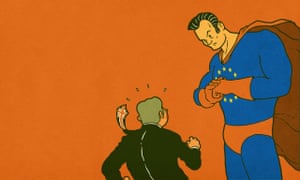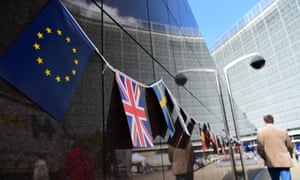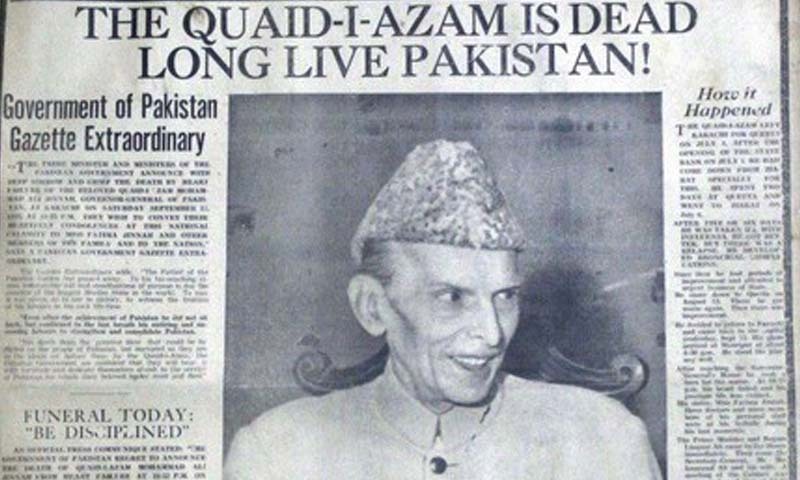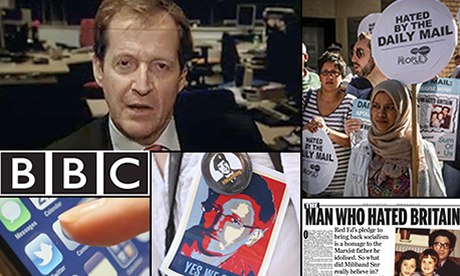Nationalism and patriotism in Pakistan are contested subjects. What makes us Pakistanis and what is it that makes us love our land and nation?
The answers to these questions vary widely depending on who is being asked. A large part of our national identity stems from our sense of history and culture that are deeply rooted in the land and in the legacy of the region’s ancient civilisations. Religion has also played a big part in making us what we are today. But the picture general history textbooks paint for us does not portray the various facets of our identity.
Instead it offers quite a convoluted description of who we are. The distortion of historical facts has in turn played a quintessential role in manipulating our sense of self. What’s ironic is that the boldest fallacies in these books are about the events that are still in our living memory. Herald invited writers and commentators, well versed in history, to share their answers to what they believe is the most blatant lie taught through Pakistan history textbooks.
The fundamental divide between Hindus and Muslims
The most blatant lie in Pakistan Studies textbooks is the idea that Pakistan was formed solely because of a fundamental conflict between Hindus and Muslims. This idea bases itself on the notion of a civilisational divide between monolithic Hindu and Muslim identities, which simply did not exist.
The stress on religion ignored other factors that could cut across both identities. For instance, a Muslim from most of South India had far more in common, because of his regionally specific culture and language, with Hindus in his area than the Muslims in the north of the Subcontinent.
Similarly, the division of the historical narrative into a ‘Hindu’ and ‘Muslim’ period, aside from the ironic fact that this was actually instituted by the British, glosses over the reality that Islamic empires also fought each other for power. After all, Babar had to defeat Ibrahim Lodi, and thus, the Delhi Sultanate, for the Mughal period to begin.
Therefore, power and empire building often trumped this religious identity, that textbooks claim, can be traced linearly right to the formation of Pakistan.
These textbooks tend to have snapshot descriptions of the contempt with which the two religious communities treated one another. This is specifically highlighted in descriptions of the Congress ministries formed after the elections of 1937.
Other factors that contributed historically to these shows of religious ‘contempt’ in South Asian history are often ignored. Indeed, Richard Eaton’s classic study of temple desecrations shows that in almost all cases where Hindu temples were ransacked, it was for political or economic reasons.
In most cases, it was because the Muslim ruler was punishing an insubordinate Hindu official. Otherwise, the Mughals protected such temples. Jumping ahead, this sort of inter-communal cooperation aimed at maintaining political control could also be seen in the Unionist Party, which was in power in Punjab all the way up until 1946.
As Pakistan was formed barely a year later, the notion that its formation was based on a long-standing and fundamental conflict between Hindus and Muslims is deeply problematic.
— Anushay Malik holds a PhD in history from University of London and is currently an assistant professor at the Lahore University of Management Sciences
Eulogising leaders
In his preface to the Muqaddimah, Ibn Khaldun warned of seven mistakes that he thought historians often committed. One of the seven is “the common desire to gain favor of those of high ranks, by praising them, by spreading their fame.”
This particular mistake, or lie rather, has plagued history writing for school texts in Pakistan since the 1950s and has been used as a political tool to project successive rulers – whether civilian or military – in a eulogistic format.
Moreover, another mindless inaccuracy is the absence of the ‘other’, where India and Congress are needlessly ignored and a one-sided version of history is deemed necessary for creating a nationalistic mindset.
This gap continues in the historical narrative for school students post-partition. Hence, some of the most blatant lies and subversion of historical facts exist in the textbooks mandated by the federal and provincial textbook boards.
Furthermore, maligning the ‘enemy’ is done quite overtly and mindlessly in official history school texts which, unfortunately, is also the case with some Indian school texts documented by discerning authors on both sides of the border.
Most nation states during the 19th and 20th centuries used official versions of history in order to create a homogenous and nationalistic identity. Pakistan’s first education minister, Fazalur Rehman, set up the Historical Society of Pakistan in 1948 so that history for the new nation could be rewritten in a fair and balanced manner using authentic and reliable sources.
Successive governments did not further this goal and history written for schools in Pakistan became the victim of fossilized textbook boards ratifying the work of unethical and unscholarly authors for public school consumption. Vested interests continue to triumph despite the open door policy since 2004 for private publishers to bid for quality textbooks.
— Ismat Riaz is an educational consultant and author of the textbook, Understanding History
Excluding and manipulating historical periods
The most blatant lie in textbook accounts of Pakistan’s history is by virtue of omission, which is in effect the denial of our multicultural, multi-ethnic and multi-religious past. It is a common complaint that Pakistan’s history is taught as if it began with the conquest of Sindh by the Umayyad army, led by the young General, Muhammad bin Qasim in 711 AD.
Most textbooks in Sindh at least do mention Moenjodaro and the Indus Valley civilization, but it is not discussed in a meaningful way and there is no discussion about its extent and culture. Important periods and events during subsequent centuries are also skimmed over, like the Aryan civilization which introduced its powerful social system and epic poetry (Mahabharata in which Sindh and Khyber Pakhtunkhwa play important roles), the Brahmin religion, a thousand years of Buddhism with its universities and the Gandharan civilization which was spread throughout present day Pakistan.
No students of Pakistani schools can tell us that Pakistan was once part of the empires of Cyrus the Great and Darius of the Achaemenid Dynasty and later of the Sassanian Empire with the legendary rule of Naushirwan, “the Just”. Similarly, hardly anyone would be aware that Asoka whose capital was in Pataliputra in the east of the subcontinent also counted Sindh, Khyber Pakhtunkhwa and Punjab as part of his domain.
The result of these omissions is disastrous on the minds of the youth in Pakistan. Instead of seeing themselves as heirs of many civilizations, they acquire a narrow, one-dimensional view of the world. This is contradicted by what they subsequently see in this global world of information technology and shared knowledge. That this is also in direct contravention of Islamic teachings does not occur to the perpetrators of a lopsided curriculum in our schools.
The first assertion in the Holy Quran is Iqra bi Ism I Rabik [and no restrictions are put on the acquisition of knowledge].
Instead, we have bans on books, digital platforms such as YouTube and even newspapers in this Islamic Republic of Pakistan.
— Hamida Khuhro is a historian and former education minister for Sindh
The other view
To say a large part of Pakistan’s history is shared with India would be stating the obvious. Yet it is this period of both our histories, or the portrayal of such, that is tampered with the most and has been used as a political tool by either side. The Herald invited renowned Indian historian and currently a Jawaharlal Nehru Fellow, Mushirul Hasan, to give his take on the lies taught through textbooks on both sides of the border.
History is only of use for its lessons, and it is the duty of the historian to see that they are properly taught. Very few in the subcontinent heed this advice. Both in India and Pakistan the intellectual climate has thrown the historical profession into disarray.
Such is the power and influence of the polemicists that a growing number of people are abandoning the quest for an objective approach. With the recent appointment of a Rashtriya Swayamsevak Sangh (RSS)-oriented Chairman of the Indian Council for Historical Research, liberal and secular historians are worried about the future of their discipline.
The diversity of approaches has been the hallmark of Indian historiography. As a result, the making of Pakistan and its evolution as a nation state is interpreted differently in various quarters.
The ghosts of partition was put to rest and not exhumed for frequent post-mortems. Moreover, the liberal-left historians did not repudiate the idea of Pakistan. On the contrary, they criticised the Congress stalwarts for failing to guide the movements they initiated away from the forces of reactionary communalism.
This was true of Maulana Abul Kalam Azad and Ram Manohar Lohia, the Socialist leader. The Maulana, in particular, charged Nehru for jettisoning the plan for a Congress-Muslim coalition in 1937 and the prospect of an enduring Hindu-Muslim partnership.
Tara Chand’s three-volume History of the Freedom Movement in India held its ground until the Janata government decided, in 1977, to rewrite the secular textbook. With the establishment of the BJP-led government in October 1999, the Bharatiya Janata Party (BJP)-RSS combination began its subversion of academia through its time-tested method of infiltration and rewriting of textbooks and ‘fine-tuning’ of curricula.
Saffronization of education will breed fanaticism, heighten caste and communitarian consciousness, and stifle the natural inclination of a student to cultivate a balanced and cautious judgement. Increasingly, it may be difficult for some of us to establish historical truths or to defend the cult of objective historical inquiry.
As the radical currents are being swept aside by the winds of right-wing discourse, it is pertinent to recall the Saidian (Edward Said) dictum that “nothing disfigures the intellectuals’ public performance as much trimming, careful silence, patriotic bluster, and retrospective of self-dramatizing prophecy.”
The story in Pakistan runs on different lines. Starting with I H Qureshi and Aziz Ahmad, scholars in our neighbours have tenaciously adhered to the belief that the creation of the Muslim nation was the culmination of a ‘natural’ process.
They have pressed into service the ‘two-nation’ theory to define nationality in purely Islamic terms. In the process, they have turned a blind eye to the syncretic and composite trajectory of Indian society, which began with Mohammad Iqbal’s memorable lines Ae Aab-e-Rood-e-Ganga! Woh Din Hain Yaad Tujh Ko? Utra Tere Kinare Jab Karwan Humara [Oh, waters of the river Ganges! Do you remember those days? Those days when our caravan halted on your bank?].
The same poet talked of “Naya Shiwala”, a temple of peace and goodwill. Again, the same poet gave lessons of religious understanding and tolerance in yet another poet.
Sadly, these thoughts are hardly reflected in our textbooks. We don’t emphasize the virtue of living with diversity and sharing social and cultural inheritances. We don’t introduce our students to the vibrant legacy of Kabir, Guru Nanak, Akbar, and Dara Shikoh. Instead, we dwell on the imaginary kufr-o-imaan ki jung, on the destruction of temples and forcible conversions. Increasingly, young students are introduced to the Islamist or the Hindutva world views that have caused incalculable damage to State and civil society.
Saadat Hasan Manto described an existentialist reality – the separation of people living on both sides who had a long history of cultural and social contact – and the paradoxical character of borders being a metaphor of the ambiguities of nation-building. He offered, without saying so, a way of correcting the distortions inherent in state-centered national histories.
Ayesha Jalal is right in pointing out that as “old orthodoxies recede before the flood of fresh historical evidence and earlier certitudes are overturned by newly detected contradictions”, this is the time to heal “the multiple fractures which turned the promised dawn of freedom into a painful moment of separation.”
In the words of the poet Ali Sardar Jafri:
Tum aao gulshan-e-Lahore se chaman bardosh, Hum Aayein subh-e-Benaras ki roshni le kar, Himalaya ke hawaaon ki taazigi le kar, aur uss ke baad yeh poochein ke kaun dushaman hai? .. [You come forward with flowers from the Garden of Lahore, We bring to you the light and radiance of the morning of Benaras, The freshness of the winds of Himalayas, And then we ask who the enemy is?].
Wars with India
The most blatant lies in Pakistani history textbooks are about the events that are still in our living memory. Among the many examples, the three given below are about the wars of 1965 and 1971, and the partition carnage of 1947. The reason for the falsehood lies in our distorted view of nationalism. Rather than let children learn from our historical mistakes, we show them a false picture. Thus we are doomed to repeat the mistakes generation after generation.
The following excerpt regarding the 1965 war is taken from fifth grade reading material published by the NWFP Textbook Board, Peshawar in 2002 — “The Pakistan Army conquered several areas of India, and when India was at the verge of being defeated she ran to the United Nations to beg for a cease-fire. Magnanimously, thereafter, Pakistan returned all the conquered territories to India.”
The Punjab Textbook Board published the following text on the causes for the separation of East Pakistan in 1993 for secondary classes — “There were a large number of Hindus in East Pakistan. They had never truly accepted Pakistan. A large number of them were teachers in schools and colleges.
They continued creating a negative impression among students. No importance was attached to explaining the ideology of Pakistan to the younger generation.
The Hindus sent a substantial part of their earnings to Bharat, thus adversely affecting the economy of the province. Some political leaders encouraged provincialism for selfish gains. They went around depicting the central Government and (the then) West Pakistan as enemy and exploiter. Political aims were thus achieved at the cost of national unity.”
“While the Muslims provided all sorts of help to those non-Muslims desiring to leave Pakistan [during partition], people of India committed atrocities against Muslims trying to migrate to Pakistan. They would attack the buses, trucks and trains carrying the Muslim refugees and murder and loot them.” The latter except was taken from an intermediate classes textbook — Civics of Pakistan, 2000.
Some more examples of totally contorted and misleading, yet ingenious and amusing, narrations of the history of Pakistan can be extracted from a single text, A Textbook of Pakistan Studies by M D Zafar.
“Pakistan came to be established for the first time when the Arabs led by Muhammad bin Qasim occupied Sindh and Multan. Pakistan under the Arabs comprised the Lower Indus Valley.”
“During the 11th century the Ghaznavid Empire comprised what is now Pakistan and Afghanistan. During the 12th century the Ghaznavids lost Afghanistan and their rule came to be confined to Pakistan”.
“By the 13th century Pakistan had spread to include the whole of Northern India and Bengal. Under the Khiljis Pakistan moved further South to include a greater part of Central India and the Deccan”.
“During the 16th century, ‘Hindustan’ disappeared and was completely absorbed in ‘Pakistan”.
“Shah Waliullah appealed to Ahmad Shah Durrani of Afghanistan and ‘Pakistan’ to come to the rescue of the Muslims of Mughal India, and save them from the tyrannies of the Marhattas…”
“In the Pakistan territories where a Sikh state had come to be established, the Muslims were denied the freedom of religion.”
“Thus by the middle of the 19th century both Pakistan and Hindustan ceased to exist; instead British India came into being. Although Pakistan was created in August 1947, yet except for its name, the present-day Pakistan has existed, as a more or less single entity for centuries.”
— A H Nayyar is a physicist and retired professor. He co-edited an SDPI report titled “The Subtle Subversion: The State of Curricula and Textbooks in Pakistan.
Pakistan was made for Muslims
The most blatant lie that covers page after page of history textbooks is that Pakistan was created for the promotion and propagation of religion. In fact when the Muslim League was established in Dhaka in 1906 one of the foremost principles was the creation of loyalty to the British rulers and to promote greater understanding between Muslims and the British government.
The idea of religion barely entered the discourse of the Muslim League until the elections of 1937, when the League lost elections and the Congress won decisively. It was at that time that religious nationalism was invoked vigorously to create a feeling of unity among the Muslims of Uttar Pardesh (UP), Bengal and Punjab in order to provide the League an ideational basis of support.
Pakistan was mainly created for the protection and promotion of the class interests of the landed aristocracy which formed the League. The meeting at which the League was formed was attended mainly by the landed elite which feared that if the British left India and representative government was established, the traditional power of the loyal Muslim aristocracy would erode, especially since the class composition of the Congress reflected the educated urban and rural middle classes seeking upward mobility and a share in political power.
The peasant movement in Bengal was mobilised for purely political purposes since its aims and ideology conflicted radically with those of the landed aristocracy.
The urban educated middle classes of UP which joined the League later and enunciated the Hindu-Muslim difference argument in 1940, eschewed Muslim nationalism soon after independence because it had outlived its political use. The nature of the state outlined by the educated urban class in 1947 was based on a pluralistic vision of a state based on religious and citizenship equality.
— Rubina Saigol is a scholar and has authored several books on education and society and co-edited books on feminism and gender.











